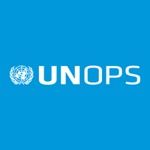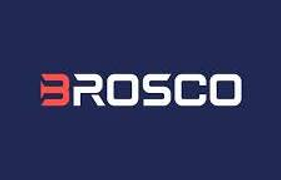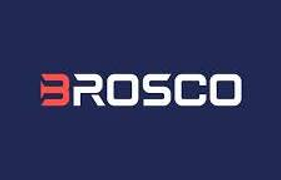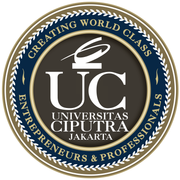Lowongan Kerja Jakarta Raya Posisi Consultant – Improving The National Aids Plan Strategy To Respond To Impacts Of Gender Inequality And Gbv On Hiv Response In Indonesia di UNOPS Indonesia Operations Centre (IDOC)

- Loker diposting 3 tahun yang lalu
Perusahaan kami telah merilis loker dengan sistem untuk posisi Consultant – Improving the National AIDS Plan Strategy to Respond to Impacts of Gender Inequality and GBV on HIV Response in Indonesia di kantor UNOPS Indonesia Operations Centre (IDOC) untuk domisili Jakarta Raya atau sekitarnya.
Pengalaman yang usaha kami inginkan adalah Pelayanan & Layanan Sosial/Konseling serta orang yang jujur dan disiplin.
Perusahaan kami tidak memiliki persyaratan minimal pendidikan/sertifikasi yang khusus terhadap pelamar sehingga kamu dapat mencoba melamar ke perusahaan kami dengan memberikan CV atau portofolio anda.
Upah yang perusahaan tawarkan cukup kompetitif menurut dari pengalaman karyawan. Minimum upah yang kami tawarkan adalah UMR/UMP daerah masing-masing. Tapi itu semua bisa berubah tergantung dari keputusan HRD.
Info Loker
| Perusahaan | UNOPS Indonesia Operations Centre (IDOC) |
| Posisi | Consultant – Improving The National Aids Plan Strategy To Respond To Impacts Of Gender Inequality And Gbv On Hiv Response In Indonesia |
| Tempat | Jakarta Raya |
| Tingkatan Kerja | Tidak Terspesifikasi |
| Kualifikasi | Tidak terspesifikasi |
| Jenis Pekerjaan | |
| Spesialisasi Dibutuhkan | Layanan Sosial/Konseling, Pelayanan |
| Gaji Min | Rp. 1.800.000 |
| Gaji Max | Rp. 5.500.000 |
- BACKGROUND
Epidemiologically, HIV and AIDS transmission in Indonesia concentrates in high-risk groups or key populations, including sex workers, male sex with men, transsexuals, and injecting drug users. The Ministry of Health’s (MoH)’s quarterly HIV update shows that women consistently make up one-third of new cases. Women’s vulnerability to HIV is visible in the HIV projection up to 2020, which shows that women who are not members of any key population are the subpopulation with the highest transmission rate. This fact is strengthened by a new HIV estimation released by the Ministry of Health, showing that 37% of new HIV infections occur among low-risk women in Indonesia. Additionally, the National Commission of Violence Against Women (NCVAW) annual report, launched in 2020, reveals a spike of VAW cases among women living with HIV (WLHIV), 203 cases in 2020 compared to only four in 2019. Up to date, the annual report documents 12 cases of violence against WLHIV. It is important to note that many VAW cases are underreported, particularly those experienced by WLHIV who face multiple discrimination and vulnerabilities due to their HIV status. Meanwhile, according to the 2021 report by the Ministry of Women’s Empowerment and Child Protection (KPPPA), as many as 26.1 percent or 1 in 4 women aged 15-64 years during their lifetime have experienced physical and/or sexual violence by partners or non-partners.
The above situation implies the need for gender mainstreaming into HIV responses in Indonesia using the existing opportunities where Indonesia is shaping the future direction of HIV programming and budgeting. The Global AIDS Strategy provides the framework for a revitalized response to HIV at the country level – it uses an inequality lens to focus attention on what drives HIV disease transmission and progression. The UN in Indonesia has adopted this methodology to ensure we strive to leave no one behind in supporting the national response to HIV in Indonesia. The vulnerable are prioritized for prevention and treatment. Promoting gender equality is therefore central to the achievement of this goal.
In 2018 and with support from the Global Fund AIDS, TB and Malaria (GFATM), a baseline assessment of the human rights situation in Indonesia with regard to access to HIV and TB services was undertaken. The assessment concluded that the key and vulnerable populations who were the most affected by human rights-related barriers to HIV and TB services were: female sex workers, men who have sex with men, transgender individuals, people living with HIV, people living with TB, people who use drugs, prisoners, women, and children. Major HIV-related barriers that were highlighted are (a) stigma and discrimination, (b) punitive laws, policies, and practices, and (c) gender inequality and gender-based violence.
Gender-based violence (GBV) significantly affects the health-seeking behavior of women living with and at risk of HIV in accessing HIV-related services. A baseline study report by the Global Fund in 2018 finds that GBV has resulted in very low HIV testing uptake in antenatal clinics across the country, which rarely exceeds 10-15%. Without a comprehensive and effective strategy to address gender inequality and GBV, HIV prevention and treatment coverage targets in Indonesia will be seriously affected.
In 2021, the Global Fund (TGF) launched its new strategy for 2023 – 2***, which has the vision of “A world free of the burden of AIDS, tuberculosis, and malaria with better, equitable health for all.” In its new strategy, TGF reinforces contributory objectives, Maximizing Health Equity, Gender Equality, and Human Rights, that improve HIV, TB, and Malaria (HTM) outcomes and drive more equitable access to health services. The Global Fund will support countries and communities by scaling up comprehensive programs and approaches to remove human rights and gender-related barriers across the portfolio, supporting the comprehensive Sexual Reproductive and Health rights (SRHR) program and strengthening its integration with HIV services for women in all diversity and their partners, advancing youth-responsive programming, including for adolescent, girls, and young women and young Key and Vulnerable Population (KVP) and their partners, deploying quantitative and qualitative data to identify drivers of HTM inequity and inform targeted responses, including by gender, age, geography, income and for KVP, leveraging the Global Fund’s diplomatic voice to challenge laws, policies and practices that limit the impact on HTM.
Currently, the Indonesia government is preparing the development of the Global Fund’s proposal for the next cycle from 2024 – 2***. As part of the requirements, the government needs to submit the National HIV Action Plan that demonstrates the strategy to address gender inequality issues in the HIV response. Unfortunately, the National HIV Action Plan document is only valid from 2020 – 2***. Accordingly, the Ministry of Health plans to conduct a mid-term review and develop a bridging document that covers the National HIV action plan for 2025-2***.
Responding to the needs of the Ministry of Health, UN Women will support the government in strengthening the HIV National Strategic Plan to address the gender inequality and GBV issues in HIV response by developing a Theory of Change (TOC) and the strategic plan for these issues. This document will be used as a reference in the HIV response program in Indonesia, which can be a derivative of the Indonesian Ministry of Health’s National HIV Action Plan, which is currently being reviewed, and the document specifically addresses the issue of Gender Inequality and GBV in the HIV response. This document will also be used in developing the next Global Fund proposal, which starts to strengthen its Human Rights programs and will be integrated into other modular programs to be more gender-sensitive. The gender assessment report and the HIV National Action Plan that demonstrates a strategy to address gender inequality issues in HIV response are among the requirements of the next Funding Request documents.
In this regard, UN Women is looking for an organization focusing on HIV response in Indonesia to assist in improving the National AIDS Plan Strategy to respond to the impacts of gender inequality and GBV on HIV response in Indonesia. The organization is expected to develop the Theory of Change (TOC) and a strategic paper as the supporting document for the National AIDS Plan to strengthen the response to Gender Inequality and the GBV in HIV response.
2. SCOPE OF WORK, SPECIFIC TASKS, AND RESPONSIBILITIES
Under the overall guidance and supervision of the National Program Officer EVAW UN Women Indonesia with close monitoring from the HIV, Gender, and Human Rights Officer, the consultant will undertake the following tasks:
- Developing the theory of change framework to examine the impact of gender inequality faced by WLHIV and women affected by HIV on their access to HIV health services and to see the connection between the access of women living with HIV victims of GBV to essential services with the continuation of their HIV treatment and how it will impact on achieving the 95-95-95 goal.
- Developing the strategy to address gender inequality and GBV will be developed based on the theory of change. It will be created to demonstrate the context and see how the strategy to address gender inequality and GBV will have an impact on HIV prevention and treatment coverage targets in Indonesia.
- Conduct the technical meeting with the stakeholders, namely MoH, MoWECP, and other related ministries, CSOs, communities, academics, and other development partners, regarding the purpose of developing this document; this is to gain support from the key stakeholders related to this document including to have the steering committee in the process of development of the document. To ensure the ownership of the process, multi-stakeholder participation is essential. Forming a steering committee will foster partnerships among national stakeholders and make sure there are buy-ins from national authorities with the mandate to implement the national AIDS response.;
- Conducting a series of data collection activities through desk reviews, FGDs and in-depth interviews with policymakers, including from MoH, MoWE, and other related ministries, CSOs, communities, academics, and other development partners.
- Disseminate the result to key stakeholders in the HIV response.
At the end of the project, a strategy to address gender inequality and GBV will be developed based on the theory of change. It will be created to demonstrate the context and see how the strategy to address gender inequality and GBV will have an impact on HIV prevention and treatment coverage targets in Indonesia.
3. CONTRACT PERIOD AND WORK LOCATION
The period of this consultancy is from 1 March 2023 to 30 April 2023. This consultancy is based in Jakarta.
4. EXPECTED DELIVERABLES
The consultant will be reporting to the HIV, Gender, and Human Rights consultant, with the general supervision of the National Program Officer EVAW UN Women Indonesia.
Deliverables
Tasks
Target Dates
Payment
Deliverable 1
- Theory of change framework that demonstrates the impact of gender inequality faced by WLHIV and women affected by HIV on their access to HIV health services and to see the connection between the access of women living with HIV victims of GBV to essential services with the continuation of their HIV treatment and how it will impact on achieving the 95-95-95 goal.
- Report of activities implementation:
- The technical meeting, including the formation of the steering committee.
- Process of a series of data collection.
- Developing the theory of change framework to examine the impact of gender inequality faced by WLHIV and women affected by HIV on their access to HIV health services and to see the connection between the access of women living with HIV victims of GBV to essential services with the continuation of their HIV treatment and how it will impact on achieving the 95-95-95 goal.
- Conduct the technical meeting with the stakeholders, namely MoH, MoWECP, and other related ministries, CSOs, communities, academics, and other development partners, regarding the purpose of developing this document; this is to gain support from the key stakeholders related to this document including to have the steering committee in the process of development of the document. To ensure the ownership of the process, multi-stakeholder participation is essential. Forming a steering committee will foster partnerships among national stakeholders and make sure there are buy-ins from national authorities with the mandate to implement the national AIDS response.;
- Conducting a series of data collection activities through desk reviews, FGDs and in-depth interviews with policymakers, including from MoH, MoWE, and other related ministries, CSOs, communities, academics, and other development partners.
9 March 2023
55%
Deliverable 2
- Draft of a strategic plan document to address Gender Inequality and GBV in HIV response to maximize HIV prevention and treatment coverage in Indonesia is produced.
- Report on the dissemination documents.
- Developing the strategy to address gender inequality and GBV will be developed based on the theory of change. It will be created to demonstrate the context and see how the strategy to address gender inequality and GBV will have an impact on HIV prevention and treatment coverage targets in Indonesia.
- Disseminate the result to key stakeholders in the HIV response.
25 March 2023
45%
6. REQUIRED SKILLS AND EXPERIENCE
The consultant is required to have the following selection criteria:
- Advance study in Gender Studies, Human Rights, Communication, Social Science, or other related fields or bachelor’s degree in the same fields with 7 additional years of relevant experiences.
- Demonstrated experience working related to the field of HIV/AIDS and/or VAW/ Gender Equality and Human Rights in Indonesia.
- Good experience in designing programs, especially in HIV and or VAW/Gender Equality and Human Rights program.
- Excellent reporting and communication skills.
- Good proficiency in Bahasa and English.
Applications will be evaluated based on the cumulative analysis.
- Technical Qualification (100 points) weight; [70%]
- Financial Proposal (100 points) weight; [30%]
A two-stage procedure is utilized in evaluating the applications, with an evaluation of the technical application being completed prior to any price proposal being compared. Only the price proposal of the candidates who passed the minimum technical score of 70% of the obtainable 100 points in the technical qualification evaluation will be evaluated.
Technical qualification evaluation criteria:
The total number of points allocated for the technical qualification component is 100. The technical qualification of the individual is evaluated based on the following technical qualification evaluation criteria:
Technical Evaluation Criteria
Obtainable Score
A) Education
20 %
B) Experience and skills
60 %
- Language and report writing skills
- Excellent command of written English, with proven report writing experience. Other UN languages an asset.
20 %
Total Obtainable Score
100 %
Only the candidates who have attained a minimum of 70% of total points will be considered as technically qualified candidates who may be contacted for validation interview.
Financial/Price Proposal evaluation:
- Only the financial proposal of candidates who have attained a minimum of 70% score in the technical evaluation will be considered and evaluated.
- The total number of points allocated for the price component is 100.
- The maximum number of points will be allotted to the lowest price proposal that is opened/ evaluated and compared among those qualified technical candidates who have attained a minimum of 70% score in the technical evaluation. All other price proposals will receive points in inverse proportion to the lowest price.
7. Submission of application
Interested candidates are encouraged to submit an electronic no later than 17 February 2023.
Submission of package
- Letter of Interest containing the statement on the candidate’s experience in the field of recruitment.
- Updated CV.
- Writing sample
- P11 including past experience in similar assignments; can be downloaded at ***************
- Financial proposal with proposed daily fee.
- Payments
Payments for this consultancy will be based on the achievement of each deliverable and certification that each has been satisfactorily completed.
–
Alamat Lengkap
| Provinsi | DKI Jakarta |
| Kota | Jakarta Raya |
| Alamat | - |
| Map | Google Map |
Keuntungan Kerja
- Mendapat pengalaman kerja
- Bonus jika lembur
- Diajari terlebih dahulu
Lamar kerja
Perlu diingat informasi yang tertera bisa saja berubah sewaktu-waktu.
Melamar pekerjaan tidak dipungut biaya, anda harus berhati-hati saat melamar pekerjaan.
Pastikan anda mengisi form lamaran yang dituju terlebih dahulu dan menunggu HRD perusahaan menghubungi untuk interview.
Disclaimer: pastikan anda membaca deskripsi dan intruksi dari lokercepat.id agar tidak mengalami kejadian yang tidak mengenakkan saat melamar pekerjaan. Karena kami adalah situs berbagi lowongan pekerjaan dengan sumber dari internet, koran, dan TV.
Tips dari admin. Gunakan bahasa yang sopan dan promosikan diri semenarik mungkin agar HRD/Staff terkait tertarik dengan anda.
Semoga sukses mendapat pekerjaan yang diinginkan.
Intruksi Melamar Pekerjaan
- Buka link "Lamar Sekarang" di atas
- Jika belum punya akunnya, silahkan daftar terlebih dahulu, buat profile/unggah resume sesuai dengan data diri anda
- Jika sudah mendaftar kalian bisa langsung login
- Promosikan diri anda lewat form lamaran kerja yang tertara
- Selesai, silahkan tunggu.
Deskripsi Perusahaan
Background Information – UNOPS
UNOPS supports the successful implementation of its partners’ peacebuilding, humanitarian and development projects around the world. Our mission is to serve people in need by expanding the ability of the United Nations, governments and other partners to manage projects, infrastructure and procurement in a sustainable and efficient manner.
Working in some of the world’s most challenging environments, our vision is to advance sustainable implementation practices, always satisfying or surpassing our partners’ expectations.
With over 7,00 personnel spread across 80 countries, UNOPS offers its partners the logistical, technical and management knowledge they need, wherever they need it.
A flexible structure and global reach means that we can quickly respond to our partners’ needs, while offering the benefits of economies of scale.
Background Information – Job-specific
THOH
Thailand Operations Hub (THOH) is a UNOPS business unit under the UNOPS Asia Regional Office and it was established to better support, develop and oversee the UNOPS portfolio of projects in South East Asia and the Pacific.
The Hub comprises three main portfolios –THOH Thailand, THOH Indonesia and THOH Pacific and provides a wide range of services including Project Management, Transactional HR, Financial, and Procurement to clients that include other UN entities, INGOs and governments/government agencies donors.
Badan Restorasi Gambut Results Enabling Facility (BRG REF)
Seasonal peatland fires are now compromising Indonesia’s economic and social development by creating considerable threats to health, the environment, and the economy. In 2015 peat fires and their related haze resulted in the hospitalization of more than half a million people due to acute respiratory infections. These fires that raged through 2.6 million hectares of forest and peatland areas in the islands of Kalimantan and Sumatra released 1.6 Gts of CO2e, surpassing the annual CO2 emissions of advanced industrialized nations such as Germany, France, and others. Direct and indirect damages cost the Indonesian national economy an estimated USD 16 billion, about 2% of its annual GDP.
In recognition of the importance of peatlands for climate change mitigation, the Government of Indonesia through Presidential Regulation No 1/2016 constituted the Peatland Restoration Agency (BRG). BRG has an important mandate: prevent forest fires, especially in peatland areas, as well as restore 2 million hectares of peatlands devastated by forest and land fires. The Agency identified 7 target provinces for peatland restoration and fire prevention activities in Riau, Jambi, South Sumatra, West Kalimantan, Central Kalimantan, South Kalimantan and Papua.
Since its establishment in 2016, Norway has been supporting BRG, as current support to the BRG by the Norwegian Government falls within the wider partnership between Norway and Indonesia established in 2010 through the Letter of Intent (LOI) to reduce emissions from deforestation and land degradation of forests and peatlands . The support is part of an international climate mitigation initiative (UNFCC) supported programme that uses international aid to counter forest degradation in various parts of the world, and this is one of the largest ever contribution made to reduce deforestation.
In the framework of this background, Norway and BRG have asked UNOPS to develop a flexible multiyear administrative support mechanism for managing Norway’s financial support to BRG through the establishment of the BRG Results Enabling Facility (BRG REF). The mechanism has within its scope a back-office management component and a service, procurement, grants management and a delivery component.
Info Perusahaan
- Industri: Organisasi Nirlaba/Pelayanan Sosial/LSM
- Ukuran Perusahaan: 51 - 200 pekerja
- Tunjangan dan Lain-lain: Waktu regular, Senin - Jumat, Bisnis (contoh: Kemeja)






